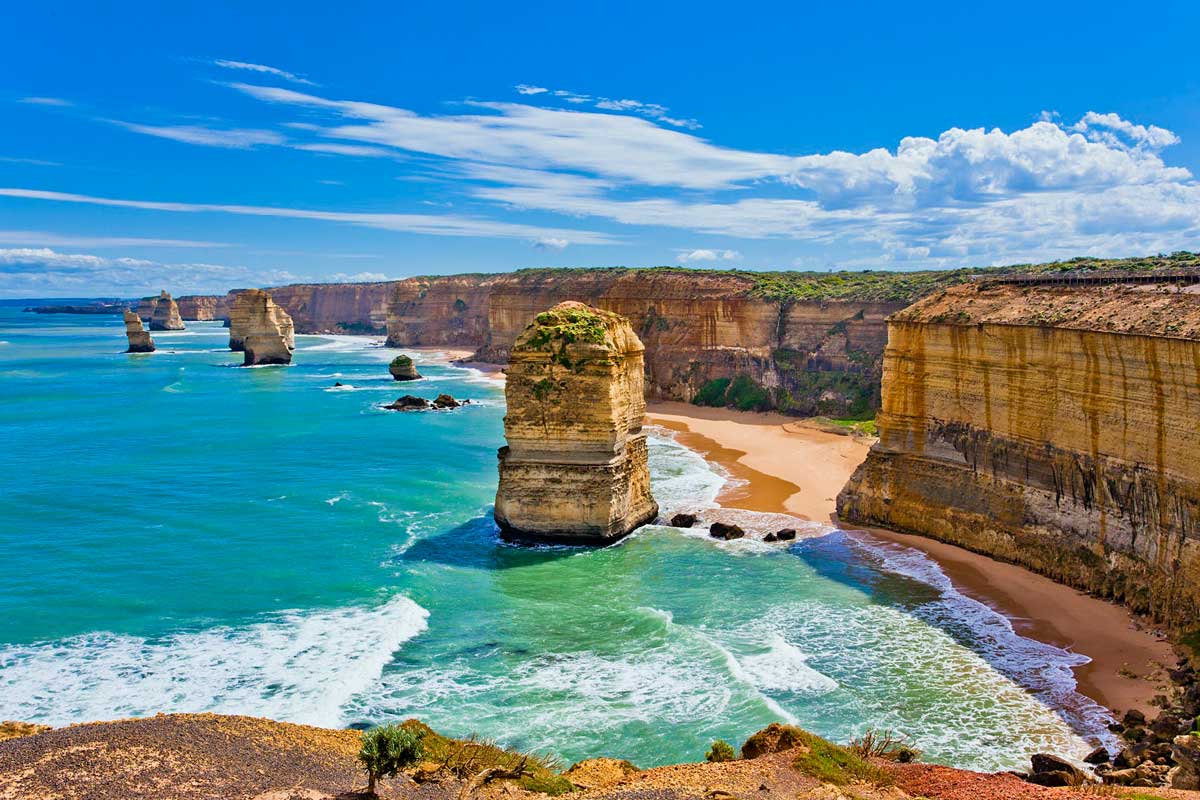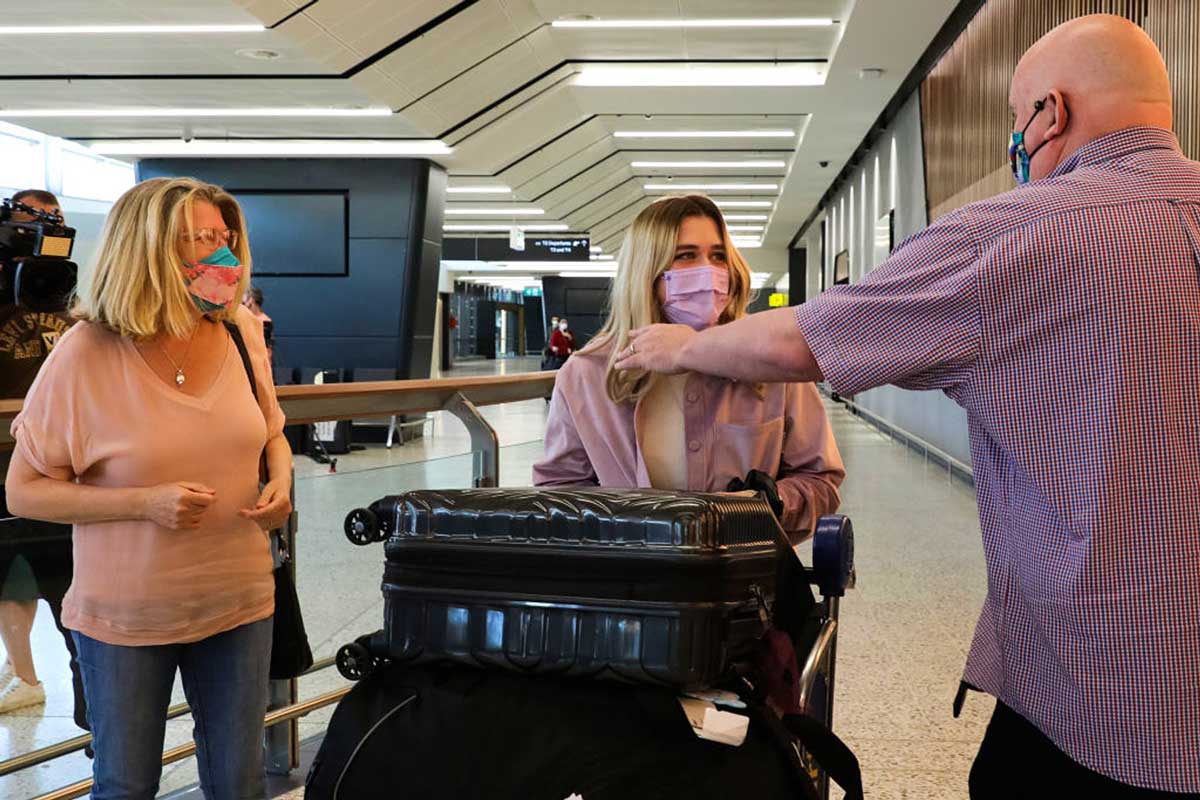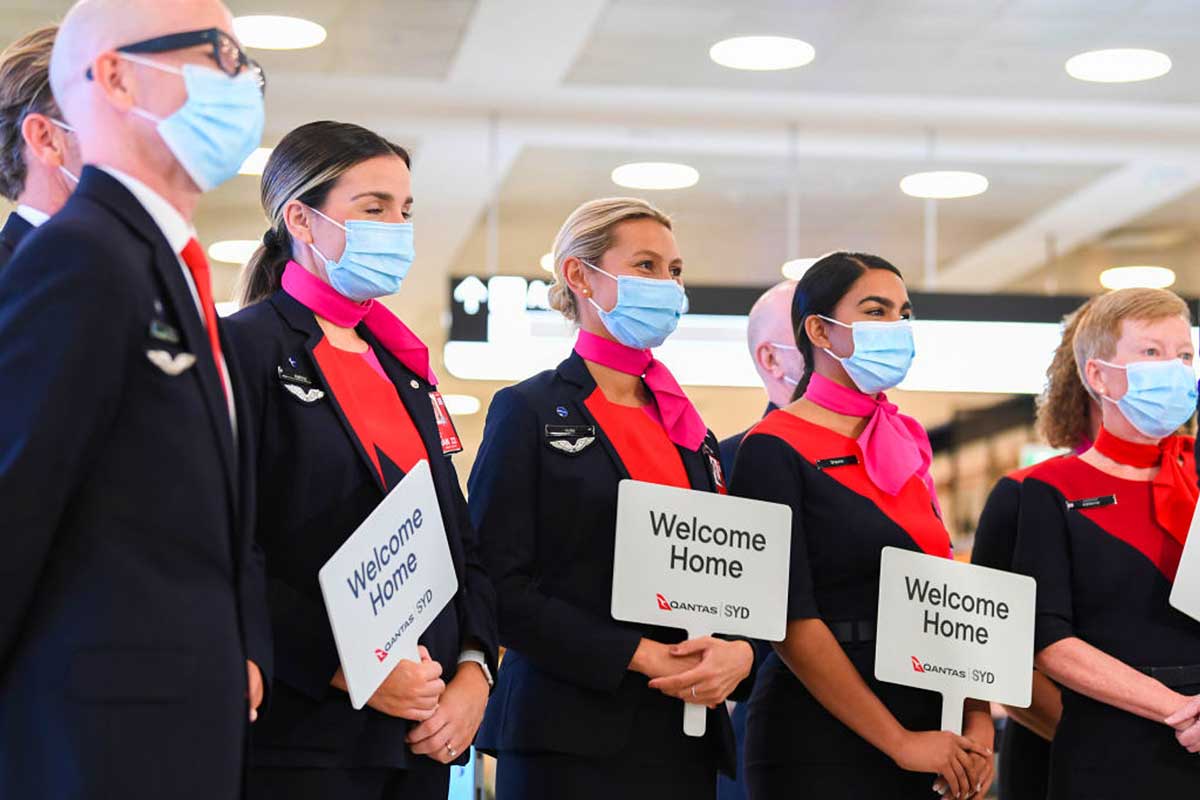Australia will open its borders on February 21, allowing fully vaccinated tourists and all visa holders to travel to Australia for the first time in two years.
“If you’ve been double vaccinated, we’d love to welcome you,” Prime Minister Scott Morrison said.
People who have not been fully vaccinated require a substantial reason to visit Australia and will continue to be subject to state and territory quarantine requirements.”
“Today’s announcement will give confidence to our vital travel industry and allow them to start planning, hiring and preparing to reopen,” the government said in a release.
“In 2018-19, tourism contributed over $60 billion to the Australian economy, with over 660,000 jobs dependent on the industry.”
Borders have been reopening in stages since November, and nearly 580,000 people have arrived in Australia in that time. This number includes fully vaccinated Australians living abroad and eligible visa holders, including working holidaymakers, international students and skilled migrants.
The decision to fully open the borders for those who arrived with vaccination was taken due to the fact that Australia registered a 23% decrease in the number of hospitalizations caused by COVID-19.

What vaccines are accepted for travel to Australia?
To be considered fully vaccinated, travelers to Australia must receive at least two doses (including mixed doses) of an approved vaccine, including AstraZeneca, Pfizer, Moderna, Covax, Coronavac, Sputnik, Sinopharm or Novavax, or one dose of Johnson & Johnson vaccine. At least seven days must have elapsed since the last dose. Revaccination is not required for admission at this stage.
Do children need to be vaccinated to travel to Australia?
To travel to Australia, children over 12 must show proof that they are fully vaccinated. Although some states and territories have measures in place to allow unvaccinated or partially vaccinated children aged 12-17 to travel with a fully vaccinated adult. Children under the age of 12 are not eligible for vaccination.

How to present proof of vaccination to travel to Australia
People who have been vaccinated in Australia may present their International COVID-19 Vaccination Certificate (ICVC) to airline staff prior to boarding their flight. Foreign travelers may present their own official vaccination certificates.
Are COVID-19 tests required?
Yes, all persons over the age of five must present a negative PCR test before flying to Australia. The results can be uploaded to the Internet or presented to the airline staff during check-in. The test must be done no later than 72 hours “before the scheduled departure of your first international flight,” according to the Australian embassy.
Do travelers need to be quarantined?
Unvaccinated arrivals must be quarantined, although fully vaccinated arrivals in New South Wales, Victoria, Queensland, Tasmania, South Australia, the Northern Territory and the Australian Capital Territory have been lifted from quarantine, although some states and territories have home quarantine measures in place for children aged 12 and over. under 17 who have not been fully vaccinated.
Western Australia is behind the vaccination targets that would allow it to reopen its border. All arrivals to Western Australia are currently required to quarantine for approximately 14 days, with the first seven days spent in a quarantine hotel designated by the government.

Which airlines fly to Australia?
Major airlines such as Hawaiian Airlines, Etihad, Emirates and Air New Zealand stepped up operations after Australia began reopening in November. Qantas Airways, Australia’s flag carrier, is operating three weekly return flights between Sydney and London and three weekly return flights between Sydney and Los Angeles to meet “buoyant demand”. New schedules are expected to be announced ahead of the announcement of the resumption of flights.

